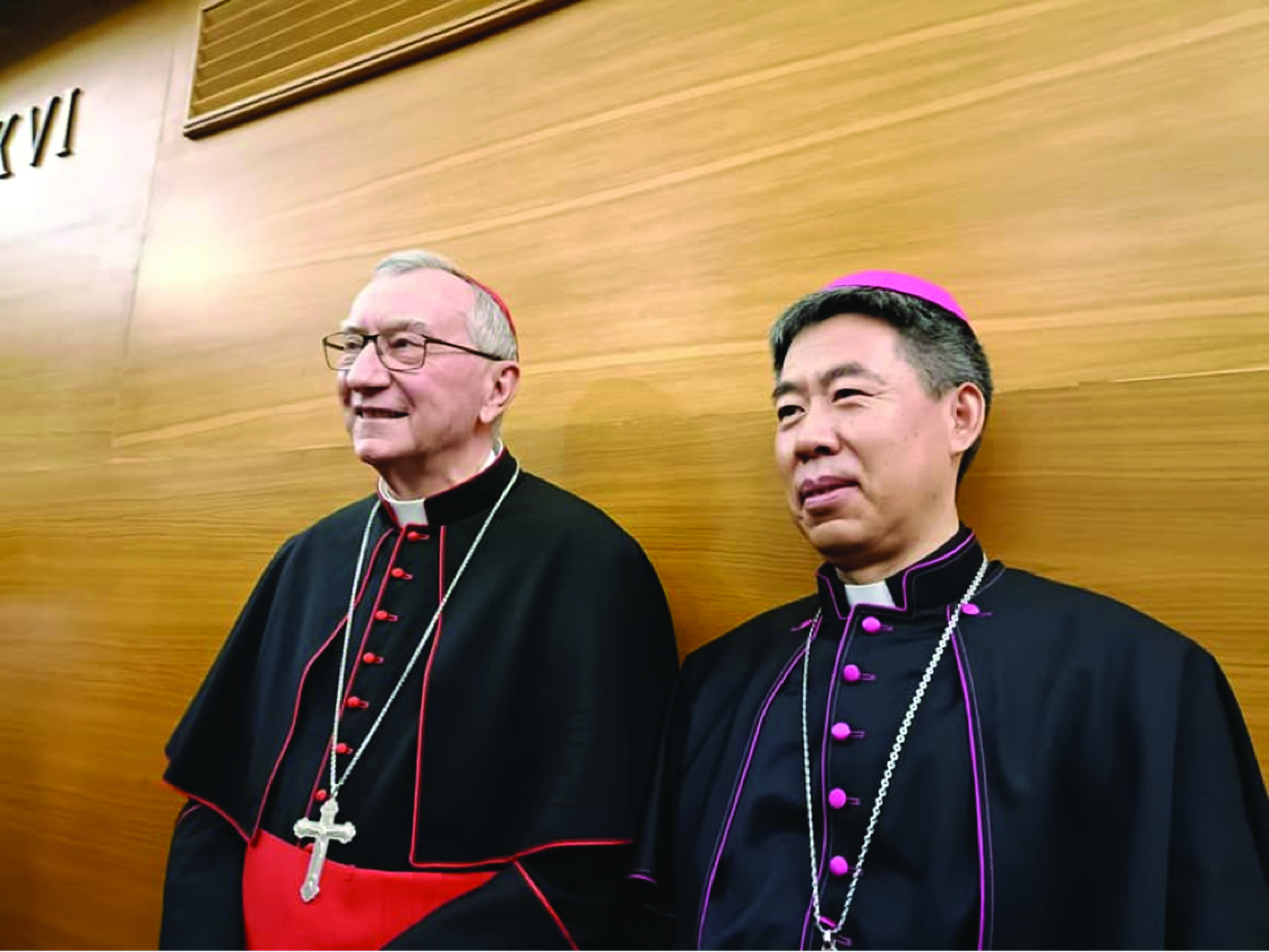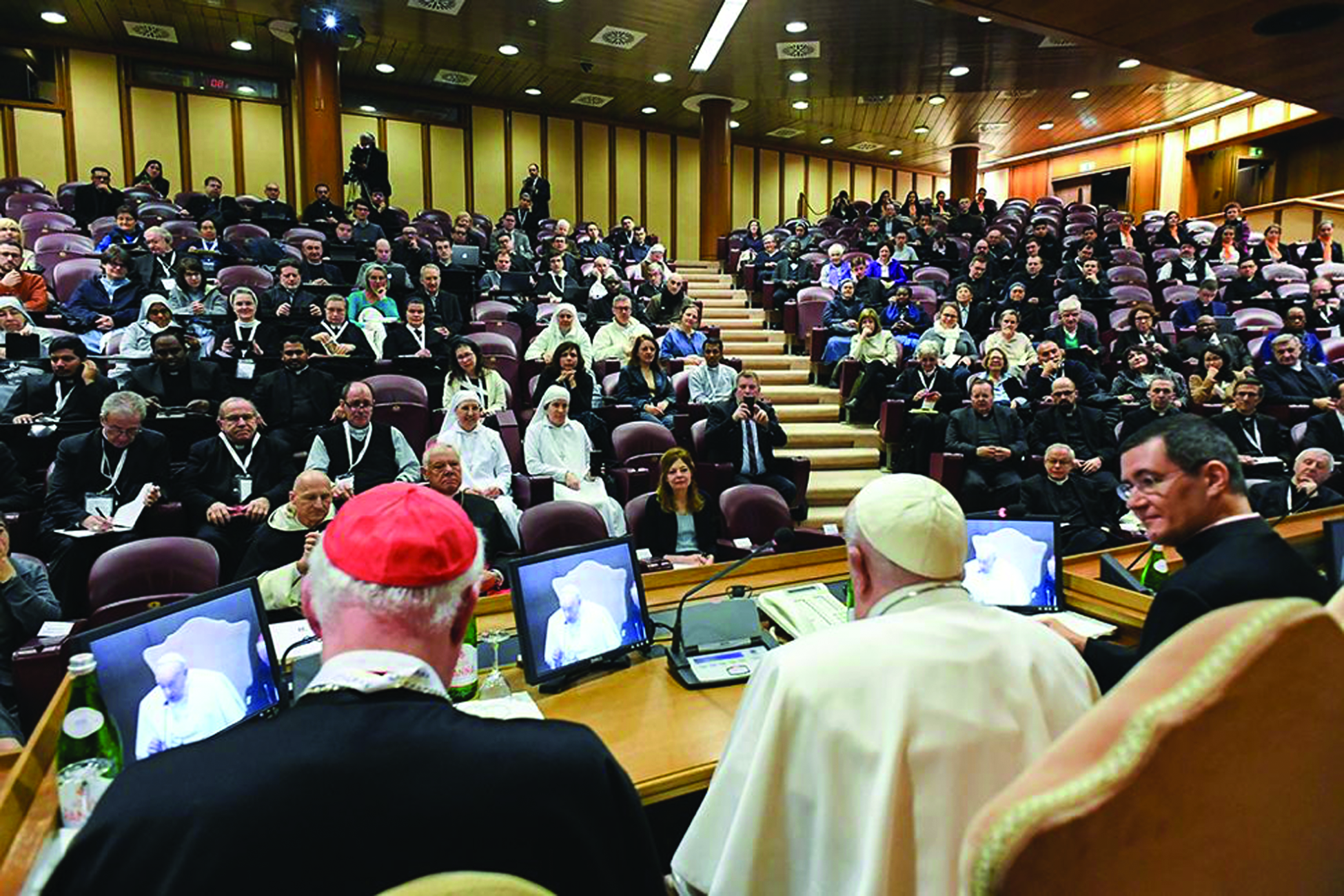Pope Francis convenes an Ordinary Synod on the Family in October 2015 to address the mounting crisis of marriage and family life; it will build on themes discussed in last October’s preparatory Extraordinary Synod

Here, an image from the beginning of the Synod on the Family in 2014, on October 6. This afternoon session was held in the presence of Pope Francis in the Synod Hall (Galazka photo)
Pope Francis looked to the West, and to the world, and saw families, mired in a media-fed culture of libertinism and individualism, increasingly broken by divorce, adultery, cohabitation — and the many personal and social pathologies that result.
How to lead today’s family to a deeper spiritual health, and hope, and love?
Like a parent, Francis wants to embrace his spiritual children, but also to demand something of us.
He wants to reach out to those in failed marriages, to encourage repentance, forgiveness and renewal — a “pastoral” concern for helping people rebuild damaged, or seemingly destroyed, bridges to the Lord.
At the same time, there is the necessity of living the truth: Christ holds up a high standard for marriage. “The teaching of Jesus on adultery was a very demanding teaching, scandalous even in His own day,” Cardinal Peter Erdo, the General Relator of the Synod, said recently. “Even His own disciples said: ‘If this is the way it is, it’s not worth it to marry.’ Therefore, the Church has always known that her message on marriage contains something difficult and provocative.”
Cardinal Carlo Caffara, Archbishop of Bologna, has said the Church’s teaching on the indissolubility of marriage “is a truth that God in his creative act has inscribed upon the person of every man and woman… Here we are not talking simply about a norm that may or may not admit of exceptions, nor of an ideal after which we strive. We are talking about the very essence of marriage and the family.”
But some see it as a rigidity, a sacrifice of compassion for “doctrinal purity,” to base all discussion of Catholic norms for marriage and family solely on the teaching (the reality) of indissolubility.
At the Extraordinary Synod, Cardinal Walter Kasper famously proposed the possibility of admitting Catholics in second, uncanonical marriages to Holy Communion. His understanding of how Christ’s words should guide Church discipline: “The word of Jesus is not a legal principle, but a principle with which the Church was entrusted, as proxy, by Christ to bind and to loosen… The word of Jesus must therefore not be interpreted as fundamentalist. It applies as a boundary… to understand it in the whole context of Jesus’ message and to remain faithful to him without overstretching it.”
In practical terms, Kasper says, “After the shipwreck of sin, the shipwrecked person should not have a second boat at his or her disposal, but, rather, a life raft” in the form of the sacrament of Holy Communion.
But Australian Cardinal George Pell, in the foreword to the book The Gospel of the Family, responds: “Some see the primary task of the Church as providing lifeboats for those who have been shipwrecked by divorce. And lifeboats should be available for all… But which way should the lifeboats be headed? Toward the rocks or the marshes, or to a safe port, which can only be reached with difficulty? Others see an even more important task for the Church in providing leadership and good maps to diminish the number of shipwrecks. Both tasks are necessary, but how are they best achieved?”
Pope Francis, as well, has said that the predicament of people in irregular unions shows the need for the Church to exercise mercy; the task of the upcoming October Synod is to ascertain exactly what that should mean.
American Cardinal Raymond Burke offers one kind of answer: “There is no question that those who are living in irregular unions have a very particular need of the Church’s care. I think the important thing for us is to show them how, even in their particular situation, they can convert themselves more and more to Christ and conform themselves more to Him. It is not easy; it is one of the more particularly challenging situations in which a Christian can find him or herself, but nevertheless there is grace to respond in a way that is true to the teaching of Christ and therefore liberating.”
Other issues will be addressed at the Synod as well; not least among them will be homosexual unions, the validity of which, as a concept, is gaining ground in secular society (or at least in secular law; according to polls, widespread public support is less clear).
But Cardinal Pell sees the question of divorce and remarriage as a lynchpin of sorts: “Communion for the divorced and remarried is for some… a stalking horse. They want wider changes, recognition of civil unions, recognition of homosexual unions,” Pell said. “The Church cannot go in that direction. It would be a capitulation from the beauties and strengths of the Catholic tradition, where people sacrificed themselves for hundreds, for thousands of years to do this.”






Facebook Comments